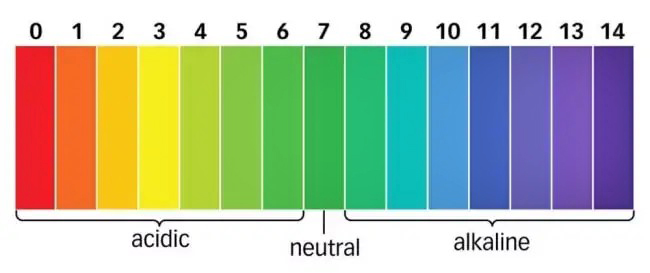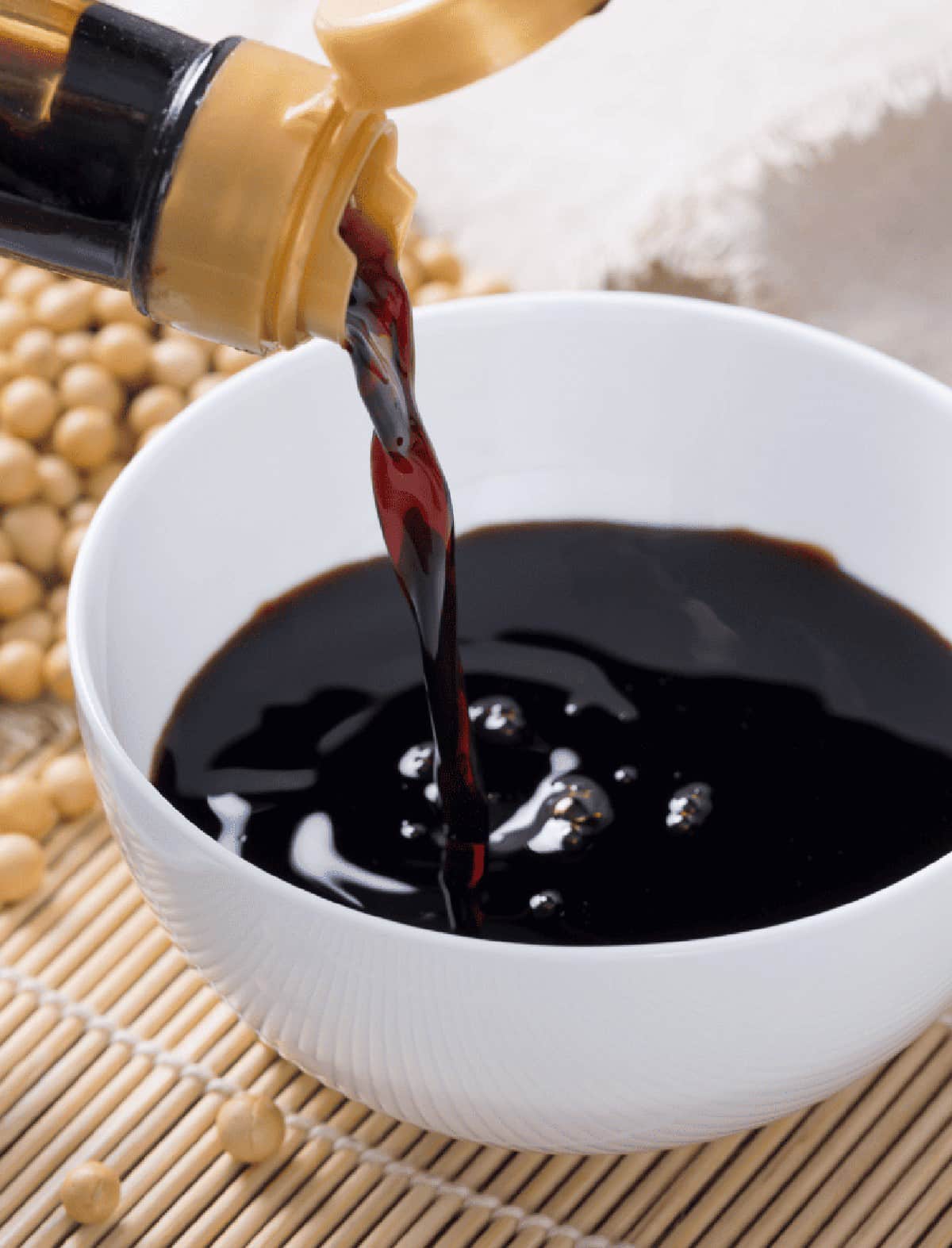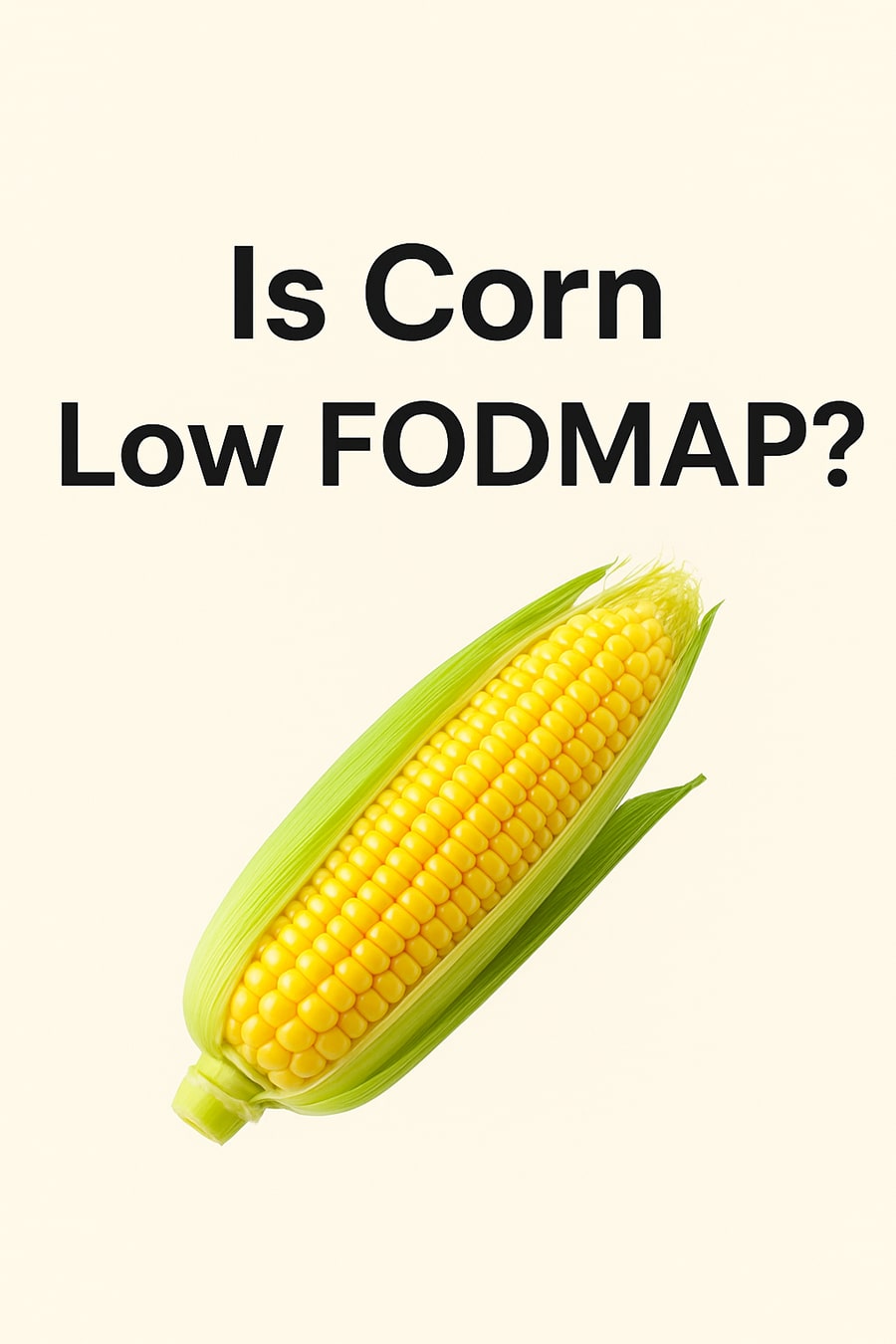Is Soy Sauce Acidic? A prime question to solve today. This time, foodeatings will explain the acidity of soy sauce, after previously discussing the expiration date of sesame oil. Okay, this is also important information for your kitchen knowledge. I have a lot of experience and knowledge to share, especially regarding the question “Is soy sauce acidic?” Let’s dive deeper!
Have you ever imagined yourself enjoying a warm bowl of ramen, sushi dipped in a bit of sauce, or savoring a delicious hot stir-fry straight from the wok. Then, to complete the flavor, you reach for that magical bottle of soy sauce. Suddenly, the thought crosses your mind, “Wait… is soy sauce acidic? And should I be worried if I have acid reflux?” Of course, these worries can interfere with your enjoyment of your favorite food. Well, you need to know the answer!
The short answer is “yes,” soy sauce is acidic. But wait, before you throw it away, let’s dive in. Let’s see why soy sauce tastes sour and what impact it can have on your health. Then, how can you still enjoy soy sauce without worrying about your health?
What Exactly Is Soy Sauce?
You should know that soy sauce has been around for over 2,000 years. It was originally introduced in ancient Chinese dishes, then later incorporated into Korean and Japanese staples, and now it’s spread throughout the world. Every corner of the globe is familiar with soy sauce, including you.
What ingredients is soy sauce made from? Soy sauce is made using a mixture of fermented ingredients such as soybeans, wheat, salt, and water. The fermentation process can take months, or even years. This process produces a umami flavor, and this process creates a slight acidity in soy sauce.
👉 On the pH scale, soy sauce usually falls between 4.8 and 5.0 (source: Healthline). So, soy sauce is indeed acidic, but not as acidic as vinegar (pH ~2.5) or lemon juice (pH ~2). Now you should know how acidic soy sauce is. When you compare it to lemon or vinegar, you can already imagine the taste or acidity of soy sauce, right?

If someone asks again, “Is soy sauce acidic?” the answer is yes, but its acidity is mild, good for enhancing the flavor of food. So, should soy sauce be avoided for the sake of maintaining a healthy stomach?
Is Soy Sauce Bad for You?
Actually, it’s the same as any other ingredient. Whether it’s bad or not depends on how much you use it. If you consume it in large quantities, it will likely be detrimental to your stomach. The same goes for frequency of use.
By considering this, you’ll know whether to discard the soy sauce or save it for various cooking purposes.
✅ The Good Side:
- Low in calories – A tablespoon usually has under 15 calories.
- Rich in antioxidants – These compounds help protect your cells from damage.
- Contains isoflavones – Found in soy, they may improve cholesterol and reduce menopausal symptoms (source: NIH).
With these points in mind, it’s important to use soy sauce in moderation. Not only can you enhance the flavor of your food, but you’ll also get antioxidants that are essential for your health.
❌ The Not-So-Great Side:
High sodium – Regular soy sauce can pack over 900 mg of sodium per tablespoon (American Heart Association). Too much sodium is bad for your blood and heart health, which is why it’s important to limit it. As long as you use it in moderation, there’s nothing to worry about.
👉 The fix? For safer use, try using low-sodium soy sauce. It has about 40% less salt, and you can still make your dishes taste umami.
So, soy sauce isn’t bad for you; the important thing is to pay attention to the portion. Always use it in moderation.
What Tastes Good with Soy Sauce?
Now, this is a question many people don’t imagine. Why is soy sauce unique and able to transform food? It could be said to be a flavor chameleon. It transforms the taste of almost any dish into a delicious one.
- Classic pairings: Sushi, sashimi, ramen, stir-fries, dumplings.
- Cooking magic: Marinades for chicken or beef, salad dressings, noodle dishes, soups, and stews.
- Unexpected twists: Soy sauce brownies, soy caramel, or even soy sauce ice cream (don’t knock it until you try it!).
Its flavor balance of salty, sweet, tangy, and umami makes it one of the world’s most versatile condiments.
So… Is Soy Sauce Acidic and Should You Use It?
Yes, soy sauce is slightly acidic, with a pH of 4.8–5. If you suffer from acid reflux or GERD, you may need to reduce or limit your intake. However, most people have no problem with a little soy sauce (occasionally).
In conclusion, soy sauce is nothing to be afraid of as long as it’s used wisely. Soy sauce isn’t just about acidity; it’s also about flavor, a tradition that dates back thousands of years, and balance.
Conclusion
Soy Sauce is acidic. It’s indeed acidic, but its acidity isn’t high, at a pH of 4.8–5, much different than vinegar at pH 2.5 or lemon juice at pH 2.0. Therefore, soy sauce isn’t inherently bad; you can consume it as long as you pay attention to portion sizes. However, if you have acid reflux or GERD issues, you should limit your intake or use low-sodium soy sauce.








